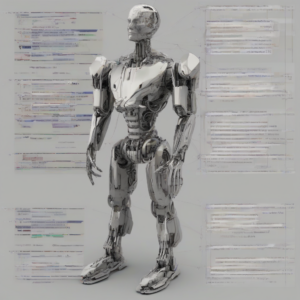Unveiling Chase Industries Inc.: A Deep Dive into a Manufacturing Powerhouse
Chase Industries Inc. stands as a prominent player in the manufacturing sector, a testament to its dedication to innovation, quality, and customer satisfaction. This in-depth analysis explores the company’s history, operational strategies, market position, and future prospects, providing a comprehensive understanding of its contributions to the industry.
A Legacy Forged in Innovation: The History of Chase Industries Inc.
From its humble beginnings as a small workshop, Chase Industries Inc. has evolved into a large-scale manufacturing entity. Its journey is marked by key milestones that reflect a commitment to technological advancement and a keen understanding of market demands. Early years focused on [mention specific early products/services and their impact]. The company’s strategic pivots and adaptations to changing market dynamics have been instrumental in its sustained growth.
- Early Years (Dates): Focus on [mention specific industry/product], characterized by [mention key characteristics – e.g., craftsmanship, innovation, etc.].
- Expansion Phase (Dates): Diversification into [mention new sectors/product lines] fueled by [mention factors – e.g., acquisitions, R&D investments, etc.].
- Consolidation and Growth (Dates): Focus on [mention key strategies – e.g., operational efficiency, market penetration, etc.] resulting in [mention key achievements – e.g., market share gains, revenue growth, etc.].
- Recent Developments (Dates): [Mention recent key initiatives, strategic partnerships, or technological advancements implemented by the company].
Operational Excellence: The Backbone of Chase Industries Inc.’s Success
Chase Industries Inc.’s operational efficiency is a cornerstone of its competitive advantage. The company employs advanced manufacturing techniques, cutting-edge technologies, and rigorous quality control measures to ensure the production of high-quality products. This commitment to operational excellence translates into improved productivity, reduced costs, and enhanced customer satisfaction.
- Manufacturing Processes: Detail the company’s manufacturing processes, including the technologies employed (e.g., automation, robotics, lean manufacturing principles). Explain how these processes contribute to efficiency and quality.
- Supply Chain Management: Discuss the company’s approach to supply chain management. Highlight strategies implemented to ensure a reliable and efficient supply of raw materials and components.
- Quality Control: Describe the quality control measures employed by Chase Industries Inc. to maintain high product quality and meet customer expectations.
- Research and Development: Elaborate on the company’s commitment to research and development (R&D). Discuss its R&D activities and their contribution to product innovation and technological advancements.
Market Positioning and Competitive Landscape: Navigating the Industry
Chase Industries Inc. operates in a dynamic and competitive market landscape. This section analyzes the company’s market positioning, its competitive advantages, and the challenges it faces. Understanding its strategic positioning is key to comprehending its sustained success.
- Target Market: Identify the specific customer segments that Chase Industries Inc. serves.
- Competitive Advantages: Discuss the key factors that provide Chase Industries Inc. with a competitive edge in the market (e.g., product quality, cost efficiency, technological innovation, brand reputation).
- Market Share: Analyze the company’s market share and its position relative to its major competitors.
- Competitive Strategies: Explain the competitive strategies employed by Chase Industries Inc. (e.g., product differentiation, cost leadership, niche market focus).
- Challenges and Opportunities: Identify the key challenges and opportunities faced by Chase Industries Inc. in the current market environment.
Financial Performance and Growth Trajectory: A Look at the Numbers
A thorough examination of Chase Industries Inc.’s financial performance provides insights into its profitability, growth trajectory, and overall financial health. Analyzing key financial metrics helps assess the company’s past performance and predict future prospects.
- Revenue Growth: Discuss the historical revenue growth of Chase Industries Inc., identifying periods of strong growth and any periods of decline.
- Profitability: Analyze the company’s profitability, focusing on key metrics such as gross profit margin, operating profit margin, and net profit margin.
- Financial Ratios: Examine relevant financial ratios to assess the company’s liquidity, solvency, and efficiency.
- Investment Strategies: Discuss the company’s investment strategies, including capital expenditures, acquisitions, and research and development investments.
- Financial Outlook: Offer a perspective on the future financial prospects of Chase Industries Inc. based on current trends and industry forecasts.
Sustainability and Corporate Social Responsibility: A Commitment to the Future
In today’s increasingly conscious world, corporate social responsibility (CSR) and sustainability are no longer optional but integral to long-term success. This section explores Chase Industries Inc.’s commitment to these critical areas.
- Environmental Initiatives: Discuss Chase Industries Inc.’s environmental initiatives, including efforts to reduce its carbon footprint and minimize its environmental impact.
- Social Responsibility Programs: Detail the company’s social responsibility programs, such as community involvement, employee well-being initiatives, and ethical sourcing practices.
- Sustainability Goals: Outline Chase Industries Inc.’s sustainability goals and targets, and assess their progress toward achieving those goals.
- Transparency and Reporting: Discuss the company’s transparency regarding its CSR and sustainability efforts, including the reporting of relevant metrics and data.
Leadership and Management: Guiding the Company’s Vision
The leadership and management team of Chase Industries Inc. play a crucial role in guiding the company’s strategic direction and ensuring its long-term success. This section profiles the key leaders and analyzes their impact on the company’s performance.
- Key Leadership Figures: Profile the key members of Chase Industries Inc.’s leadership team, highlighting their experience, expertise, and contributions to the company.
- Management Structure: Describe the company’s organizational structure and management style.
- Leadership Style: Analyze the leadership style of Chase Industries Inc.’s leaders and its impact on employee morale, productivity, and innovation.
- Succession Planning: Discuss the company’s succession planning strategies to ensure continuity of leadership and maintain a strong management team.
Future Outlook and Strategic Directions: Charting the Course Ahead
This section provides a forward-looking perspective on Chase Industries Inc.’s future prospects, considering current market trends, technological advancements, and the company’s strategic initiatives. Understanding these aspects is vital for assessing its long-term potential.
- Growth Strategies: Discuss Chase Industries Inc.’s future growth strategies, including plans for expansion into new markets, product diversification, and technological innovation.
- Technological Advancements: Analyze the impact of technological advancements on Chase Industries Inc.’s operations and future strategies.
- Market Trends: Assess the impact of current and future market trends on Chase Industries Inc.’s business model and future prospects.
- Potential Risks and Challenges: Identify potential risks and challenges that Chase Industries Inc. may face in the future.
- Long-Term Vision: Summarize Chase Industries Inc.’s long-term vision and its strategic plan for achieving its goals.





